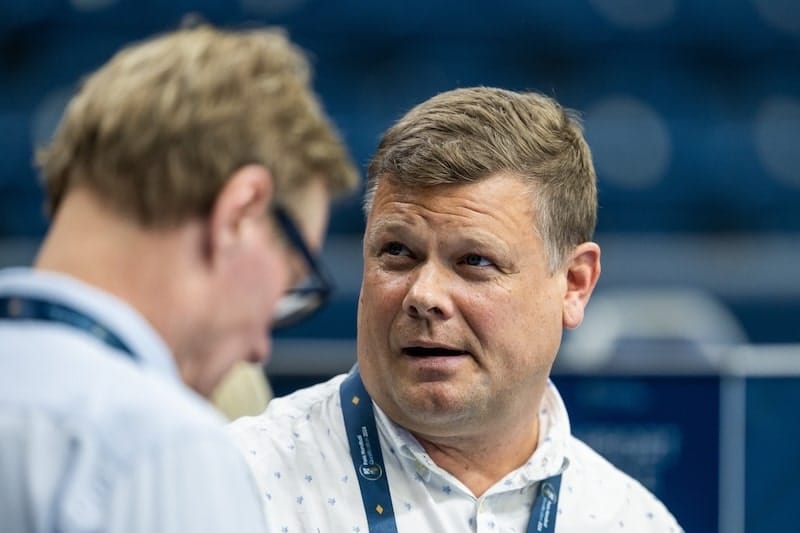With the IHF presidential election approaching this December, Sweden’s handball chairman Fredrik Rapp is taking a careful, strategic stance. “There are many factors to consider,” he says. “Some candidates want to bring Russia and Belarus back – that’s far from where we stand.” While Sweden champions Anna Rapp’s candidacy as treasurer, the federation is weighing values, alliances, and global handball politics before casting its vote.
How do you view the upcoming IHF presidential election?
“It’s not a decision I make alone,” Rapp says. “We’ll discuss it within our board and with Norway and Denmark. Continental balance, the Russia/Belarus issue, and candidate agendas – all need careful review. Naturally, we’re very happy Anna doesn’t have a competitor; our main goal is Anna in the IHF and Stefan Lövgren in the EHF.”
Sweden is a strong handball nation. How significant a role should you play internationally?
“We make our values clear without pushing others,” he explains. “Many listen to us because we’re relatively neutral. Sweden has a strong reputation thanks to Partille Cup and our national teams, just to name two examples. For a country our size, we’re influential.”
Has Sweden decided how it will vote?
“Not yet,” Rapp says. “Candidates are just starting to present their agendas. We want to hear all proposals before making any decisions.”
Transparency vs. strategy
Will Sweden announce its position publicly?
“Many votes are decided the night before the election for tactical reasons,” he says. “Being too public could harm cooperation with the candidate that gets elected, if it’s not the same candidate as the one we lobbied for.”
Is transparency important, or risky?
“We have no problem taking a position openly,” Rapp notes. “It’s about timing and strategy.”
Reflections on current leadership
How do you assess Hassan Moustafa’s tenure as IHF president?
“He has driven positive change: faster gameplay, strong TV deals, and financial stability,” Rapp says. “Criticism of his long tenure is natural, but leadership renewal is important everywhere.”
How important are national values when choosing a candidate to vote for?
“Very important, but decisions are made by committees,” he explains. “The decision-making group must share our values and drive handball the way we support. The president alone is less important than the collective.”
Candidate perspectives and global handball
How much coordination is there with other nations?
“In the EHF, northern and southern groups negotiate candidates,” Rapp says. “In the IHF, we contact countries individually, in Africa for example, to communicate preferences and gather support.”
What about the challengers to Hassan?
“They’re experienced leaders. Franjo knows the Olympic movement; Gert has long-term involvement; Tjark is well-known. We need to understand their visions.”
Is handball’s Olympic status at risk?
“I don’t really think the Olympic status of handball is at risk,” Rapp explains. “They’ve revised the ranking system – it used to have only three categories, now it’s five – so the system itself is not the main concern. The bigger issue is the audience and venue capacity. In Rio, there were huge crowds, and Paris was also very successful. Organizers loved it because it sold a lot of tickets.
“The worry now is about Los Angeles. Handball isn’t well established there, and the main arena holds only 9,000. In Australia, handball is barely a recognized sport, and in India, where the 2036 Olympics could be played, it’s been a minor sport across three consecutive Summer Olympics. That’s concerning, because smaller venues could reduce ticket sales significantly. Frankly, I’m more worried about filling arenas than about which category handball is placed in.
Does IHF need modernization?
“Yes. IHF needs more staff and resources to grow handball globally. All candidates want growth, but strategies differ – via national federations or clubs.”
How much impact will the election have on handball’s future?
“It will matter,” Rapp concludes. “The choice of vice-president is also significant. Handball is a team sport, and capable people across the board are crucial for development.”
